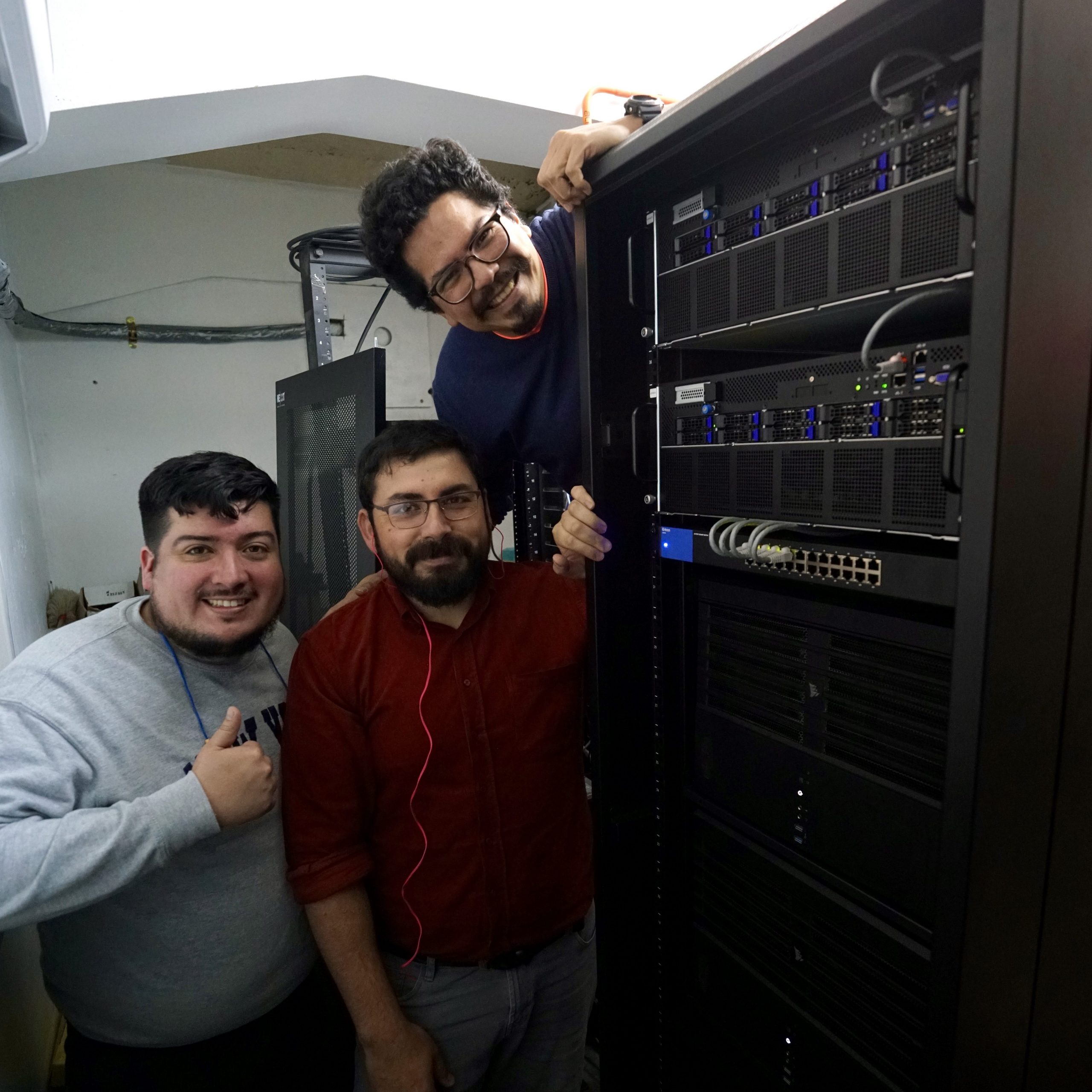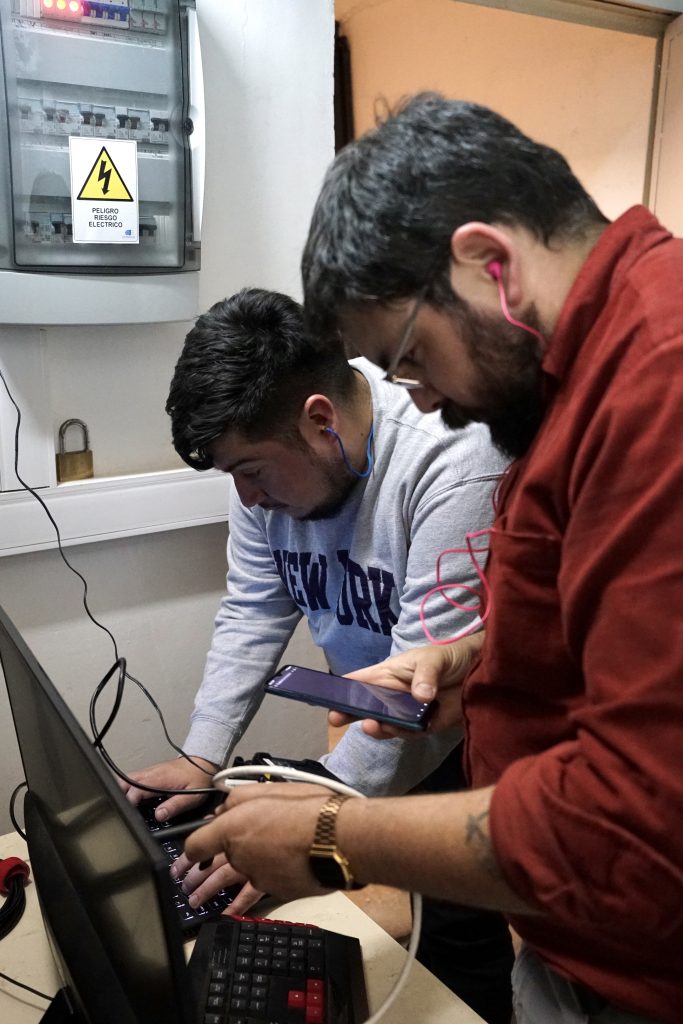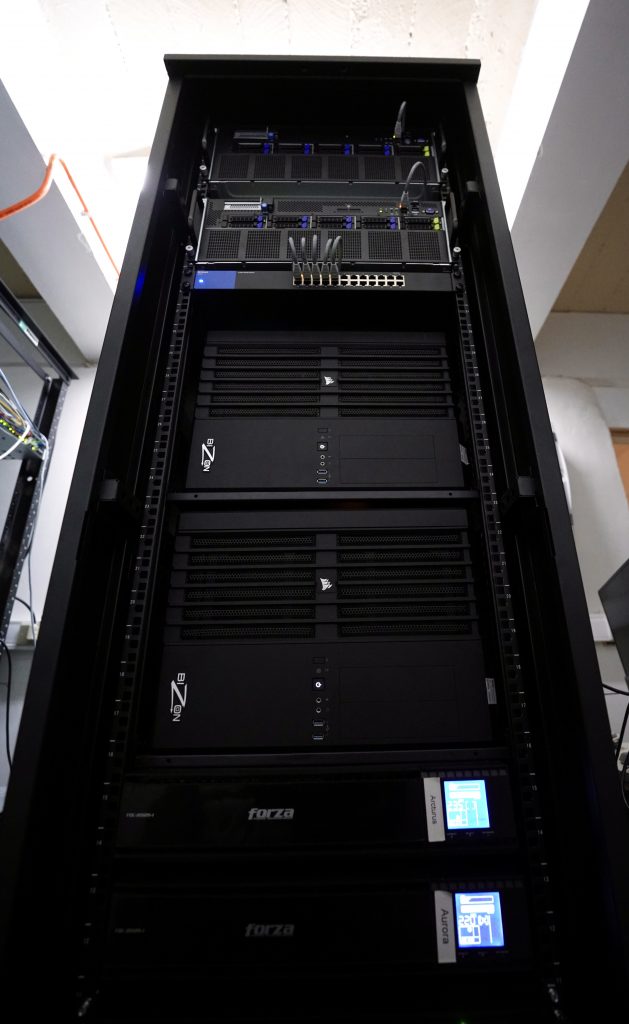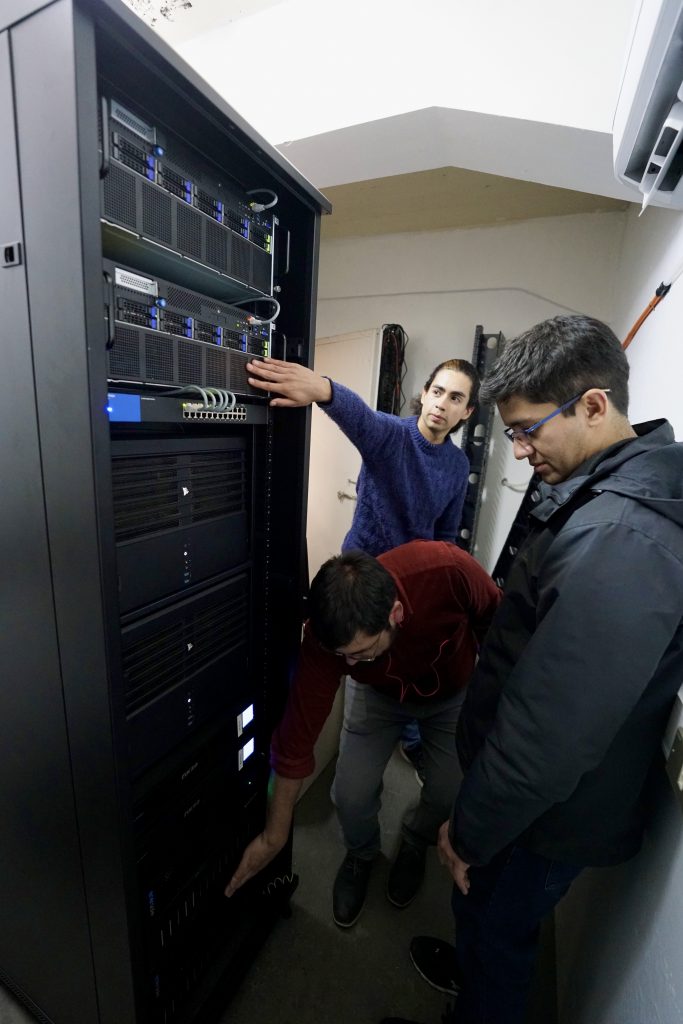The Optoelectronics Laboratory at PUCV has acquired two new computer servers to install at the School of Electrical Engineering (EIE) of the University.
Lennon and McCartney join two other servers, named Arcturus and Aurora, multiplying the laboratory’s computing capacity by 8 and, therefore, increasing the speed with which they will bring adaptive optics ideas to the optical tables of Optolab. This allows us to materialize the projects we are currently working on much more quickly.

The Optoelectronics Laboratory at PUCV has acquired two new computer servers, each equipped with 8 NVIDIA RTX6000 ADA cards, developed with 4-nanometer semiconductor technology designed for the development of deep learning applications and artificial intelligence applications.
Together, these acquisitions provide 290,816 processing cores and 768 GB of RAM, achieving a computational performance of 1.45 PetaFlops, equivalent to 128,000 Deep Blue machines, the supercomputer that defeated the world chess champion, Gary Kasparov in 1996.
In the Optoelectronics Laboratory, we focus on developing artificial neural networks based on deep learning to train optical neural networks, enabling us to do processing at the speed of light.
The investment of over 175K USD, funded by ANID through the Quimal 20006 project named “DEALT”, is a milestone for Optolab and EIE, positioning us as global leaders in the development of artificial intelligence techniques applied to adaptive optics.
The research conducted in the DEALT project will enable the detection of exoplanets. Once we apply the knowledge gained with these systems, we will contribute to the new extremely large telescopes to be installed in Chile starting in 2030, with technology “made in PUCV”.



Check out our Instagram post announcing the arrival of the new servers here.
